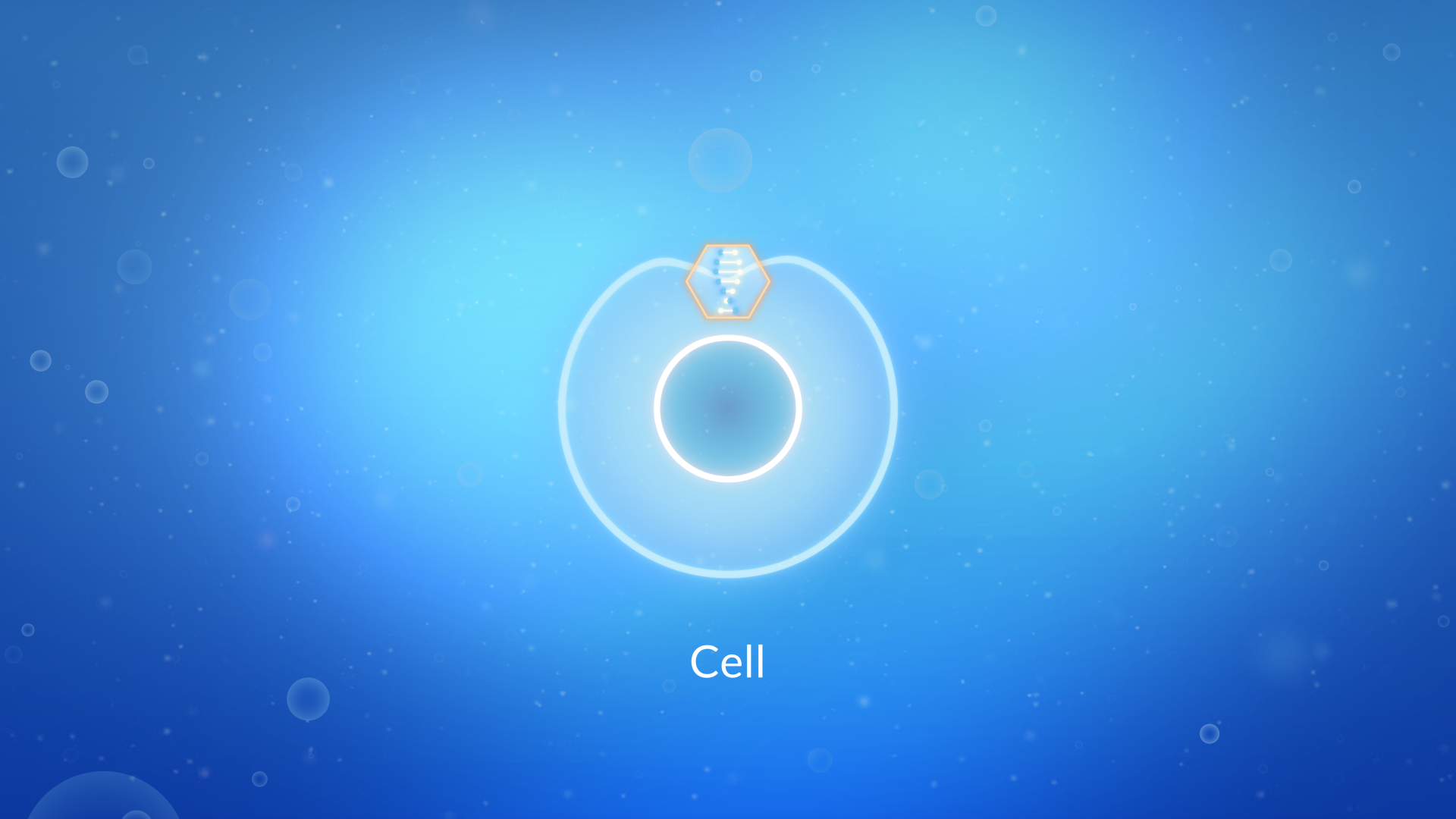- Other Products
- CCP
Gene therapy is a technique that works to modify a person’s gene(s) to treat or cure a disease. This technique may allow doctors to treat a disorder by inserting a gene into a patient’s cells to help fight a disease instead of using drugs or surgery. For gene therapy to be successful a safe delivery of genetic cargo is key. There are multiple viruses that can be used to deliver genes to cells and each virus has its advantages and disadvantages.
Gene therapy studies using Adeno-Associated Virus (AAV) vector have shown significant progress in human gene therapy and AAVs have emerged as the predominant vectors for delivering genes of interest to target tissues with improved specificity, efficiency, and safety.
AAV vectors are bioengineered tools that use a non-enveloped virus to transport modified genetic material safely into tissues and cells impacted by otherwise difficult-to-treat conditions. These vectors deliver their genetic cargo into tissues, after which the modified genes will create new instructions for those tissues and help treat disease.


Gene therapy is a technique that works to modify a person’s gene(s) to treat or cure a disease. This technique may allow doctors to treat a disorder by inserting a gene into a patient’s cells to help fight a disease instead of using drugs or surgery. For gene therapy to be successful a safe delivery of genetic cargo is key. There are multiple viruses that can be used to deliver genes to cells and each virus has its advantages and disadvantages.
Gene therapy studies using Adeno-Associated Virus (AAV) vector have shown significant progress in human gene therapy and AAVs have emerged as the predominant vectors for delivering genes of interest to target tissues with improved specificity, efficiency, and safety.
AAV vectors are bioengineered tools that use a non-enveloped virus to transport modified genetic material safely into tissues and cells impacted by otherwise difficult-to-treat conditions. These vectors deliver their genetic cargo into tissues, after which the modified genes will create new instructions for those tissues and help treat disease.
.
AAV is a small virus that infects humans through integrating its vector into the host cell genome. The virus causes a very mild immune response, and is not currently known to cause disease, lending further support to its apparent lack of pathogenicity. Consequently, AAVs are are established as gene therapy vectors, driving a resurgence of gene therapy and researchers across the world are working to improve AAV delivery, evolving the next generation of AAVs.
Successful application of the AAV technology has also been achieved in the clinic for a variety of conditions, including coagulation disorders, inherited blindness, and neurodegenerative diseases and already now, AAVs are being used to deliver FDA-approved gene therapy products. The first AAV-based gene therapy approved by the FDA in December 2017, Luxturna (developed by Spark Therapeutics), is used to treat people with an inherited retinal disease.
Unfortunately, AAVs and the immune system have a problematic interaction. As AAV is a natural virus that humans are exposed to, there is a large proportion of the population that already carries antibodies against AAV and what happens if a patient who receives a gene therapy delivered by AAVhas previously been exposed to some form of the virus?
Svar is in a unique position to offer assistance in any gene therapy project. We have robust platforms suited for all phases of drug development, as well as the experience and knowledge from our diagnostic and bioanalytical services. We are currently developing cell-based assays for immunogenicity and potency testing. Furthermore, we can create custom projects tailored to your specific needs to create truly tailor-made assays. Our Bioanalytical Services offer flexible solutions adapted to your needs and requirements.
Together, we can move the promise of gene therapy to reality.